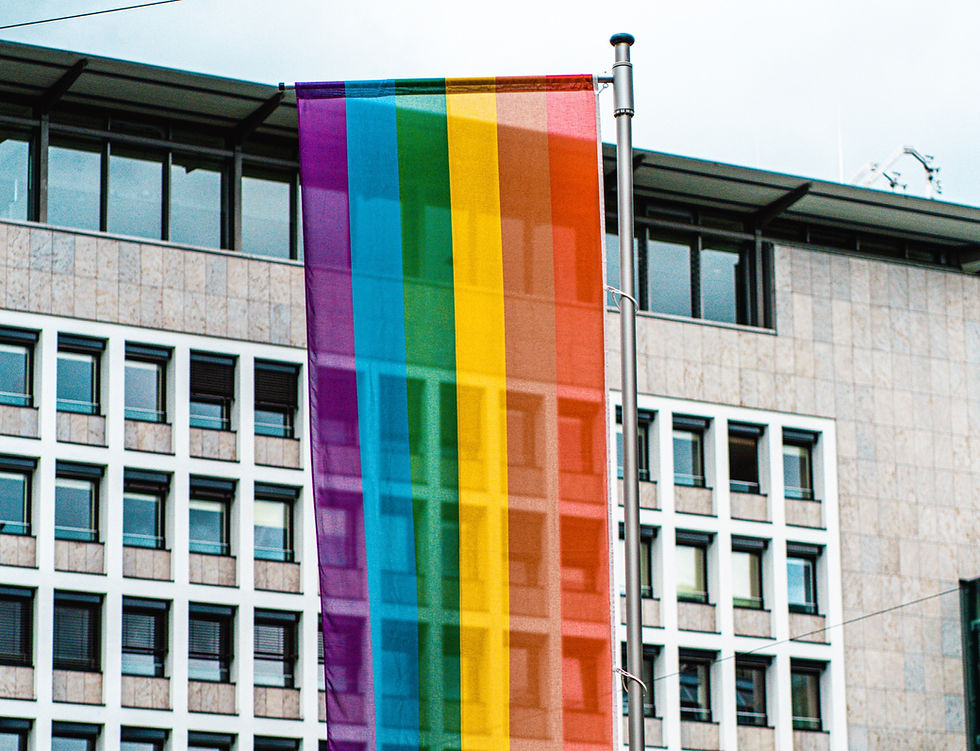The LGBT+ in Russia: A Timeline
- LGBTQ Plus India
- Jul 16, 2021
- 3 min read
Updated: Feb 11, 2022
Amanda Goveas
Russia, the largest country in the world and a prominent power state, has a deep and conflicted history with its LGBTQ community. Having records dating back to the early 17th century, the community has been persecuted, illegalized and oppressed ever since it has been recognized.

Not only did the Russian Orthodox Church view homosexuality as a sin, but a 1716 law also criminalized same-sex relationships between men in the military. However, confessions could be used to cancel out these sins. In 1832, a law outlawing all kinds of sodomy was passed, sentencing citizens with deportation to Siberia to work in internment camps as punishment. However, following an amendment to the penal code in 1903, the penalty was reduced to three months in prison.

The Bolshevik Revolution in 1917 brought a short window of freedom for the LGBT+ community. The laws of the country were destroyed and rewritten by the Bolsheviks. They came up with two Criminal Codes, one in 1922 and the other in 1926. Both omitted an article banning homosexual intercourse. Magnus Hirschfeld, a German professor who created the Institute of Sexology in Berlin, indirectly impacted the Bolsheviks. Hirschfeld frequently expressed his belief that homosexuality was a normal expression of human sexuality rather than a sickness. Although not by law, gay men were constantly targetted, facing the brunt of this hate through incessant flogging and unreasonable sacking.

Although homosexuality was permitted at the time, the community began to lose their freedom in the 1930s. Dictator Joseph Stalin brought an end to this tolerance. A government conspiracy theory suggested that groups of gay males seemed to be scheming in gangs. They proposed enacting legislation prohibiting sodomy so that these men might be imprisoned. Thousands of LGBTQ+ individuals were sent to the Gulag - Siberian prison work camps - where many died of starvation or unprotected exposure to the cold.

By the 1980s, however, the LGBT+ movement flourished in the Soviet Union. Russians were making their opinions heard in the wake of political reform. Gay and lesbian newspapers began to be published in the 1990s, particularly in some remote parts of Siberia. At the time, it seemed like Russia would follow the lead of many other European nations and grant the LGBT+ population more rights and respect.
However, this freedom was limited. Homosexuality was decriminalized in 1993. Unfortunately, this victory was short-lived. The commencement of Vladimir Putin's rule over the Federation saw an increase in homophobic hostility, criminalization, and hate crimes. Homophobia grew worse, queer newspapers vanished. Censorship increased, ultimately resulting in the 2013 introduction of the gay propaganda ban. In 2020, Putin said that Russia would not legalize gay marriage so long as he was in the Kremlin.

Despite the apparent hate against the community and its continued erasure from Soviet history, a vast majority of its heroes were, in fact, part of the community, and these heroes were granted exceptions.
Music legend Pyotr Tchaikovsky, the first internationally recognized composer, faced the threat of jail time for the 'crime' of homosexuality. Arresting this cultural icon in itself was a crime more significant than being gay, so his sexuality was not acknowledged. In March 1884, Tsar Alexander III bestowed on him the Order of St. Vladimir, which comprised a hereditary nobility title and a private audience with the Tsar.

Nadezhda Durova, a Russian woman, became the first known female officer in the Russian military. Highly patriotic, Durova cross-dressed to qualify for service in the army during the Napoleonic invasion in 1807. When rumours of an Amazon in the military led to her eventual discovery, her chain of command supported her and said her bravery was unrivalled. The Tsar was so impressed that he awarded her the Cross of St. George and promoted her to lieutenant in a hussar unit. Durova died on March 21, 1866, in Yelabuga and was buried with full military honours.

Fellow members of the community in Russia still undergo this intimidation. As their allies, albeit in different countries, we should do our part to assist them. Raising awareness of the situation and supporting Russian activists on social media, donating to pro LGBT+ charities are the few actions we can take remotely. Every minor step matters. Like Lisa Androshina said, "You may have some fears, at the same time, there is a tunnel. You can move slowly to the light; you can make an impact.”
Sources:
https://www.gaystarnews.com/article/the-secret-gay-history-of-russia/
https://www.calvertjournal.com/features/show/11872/lgbt-russian-cultural-figures-russia-z
https://popularresistance.org/meanwhile-in-russia-putin-passes-law-against-protests/
https://www.reuters.com/article/us-russia-putin-constitution-idUSKBN2072DS
https://www.nbcnews.com/nbc-out/-not-hiding-gay-lesbian-russians-say-cultural-shift-underway-rcna1225
https://www.bbc.com/news/world-europe-41737330
https://www.calvertjournal.com/features/show/11872/lgbt-russian-cultural-figures-russia-z




Comments